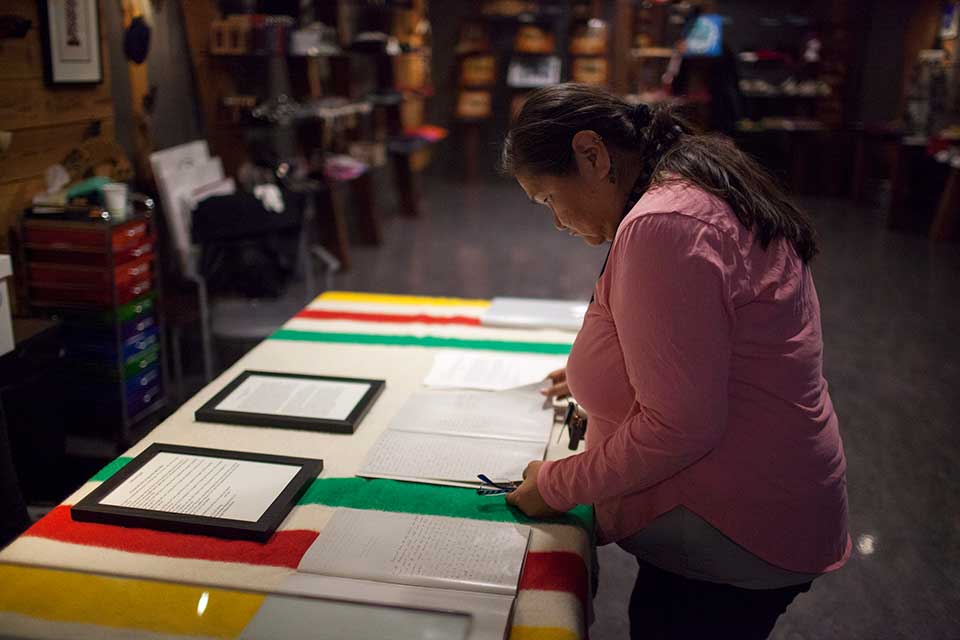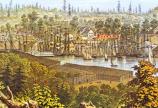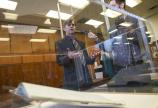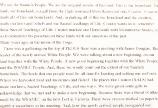First Nations, Land, and James Douglas
Songhees Conference Featured in The Ring
Historic gathering includes transformative translations

The presentation of the first-ever translations in the local Indigenous languages of the original Douglas Treaties of the colony of Vancouver Island is a pivotal element in a historic event taking place in Victoria this weekend.
Historic gathering on Indigenous and treaty rights
Hosted by the Songhees First Nation and UVic’s Department of History and Faculty of Law, over 300 people will come together on Feb. 24, 25 and 26 from local First Nations, as well as the campus and wider communities, to explore the significance, misunderstandings, impacts and repercussions of the treaties which were produced by British colonists in the years 1850 to 1854 and were the only ones signed in southern BC.
The symposium (now full to capacity) will be an opportunity for enhanced understanding about Indigenous views of colonial history and specifically the treaties, and insights into the historical significance and meaning of the treaty texts now translated into the SENĆOŦEN, the language of the WSÁNEĆ people whose ancestral territory includes the Saanich Peninsula and Gulf Islands, and the Lekwungen language of Songhees and Esquimalt peoples by, respectively, Elders John Elliott of the Tsartlip First Nation and Elmer George of the Songhees First Nation.
Elliott, an esteemed teacher and fluent SENĆOŦEN speaker who teaches at the Saanich Tribal School, is deeply involved in the Indigenous language revitalization movement and, as he told the Times Colonist in recent coverage about the symposium: “The name given to me was STOLȻEŁ. It’s a place name, from what’s now Friday Harbour. It means out at sea loaded with your possessions.
"My father wanted me to look after that name so we don’t lose connection to that place. Names carry responsibilities.”
He also spoke with CBC News and the Canadian Press, as well as other news outlets, about the significance of the translations (and the retranslation of the texts back into English) in media coverage ahead of the three-day gathering.
A highly collaborative effort
The Department of History and Faculty of Law at UVic are collaborating with the Songhees First Nation to host this historic symposium.
The idea for the first-ever Lekwungen and SENĆOŦEN translations of the Douglas Treaties arose as part of early planning meetings for the symposium.
John Lutz, chair of the UVic history department, a member of the organizing committee and an historian who focuses his research on the study of Indigenous-settler relations in the Pacific Northwest, says the translations “are a great legacy from this gathering and will be available for generations to come.
"But there is also an irony to this. These were originally oral agreements made with the local First Nations in their languages but written down only in English. Now when these written treaties are finally translated into the local languages, there are only a few speakers of the languages able to understand them.
“What the translations do provide now is a much better understanding about what the Douglas Treaties really meant to the Coast Salish and Straits Salish ancestors who lived on these territories all those years ago.”
The organizing committee also includes:
- Cheryl Bryce of the Songhees First Nation;
- Graham Brazier, an independent scholar;
- Hamar Foster, a professor emeritus of UVic Law;
- John Rice Jr. of the Songhees First Nation;
- Mark Salter, marketing and tourism manager for Songhees First Nation;
- Neil Vallance, a UVic PhD student (law);
- Nick Claxton (W̱SÁNEĆ) of UVic Indigenous Education;
- Peter Cook of UVic History;and
- Sarah Taekema, a UVic MA student (history).
Foster, a UVic professor emeritus and former associate dean of law, specializes in the legal history of the fur trade and Indigenous law from historical perspectives. Foster and Vallance, who will give two presentations at the symposium, played key roles in the coordination of the three-day gathering.
“The original idea for the symposium was to hold a small get-together for those with a scholarly interest in this timely and important topic,” says Foster. “But, thankfully, the project just grew and grew into something much better.
“It became a joint effort by the Songhees First Nation and UVic, and now over 300 people from both the Indigenous and non-Indigenous communities will be gathering to learn about the ‘Douglas Treaties’ and the different perspectives that can be brought to bear on them.
“For so many people this is a forgotten aspect of BC’s history. It is hugely satisfying to be able to do something about that.”
Listen to Vallance on local CFAX radio talking about Indigenous interpretations of the treaties at the time, the documentation surrounding the treaties, the role of Indigenous knowledge keepers and whether or not the oral agreements included a cessation of land.
Indigenous versions of BC treaties, translated for first time
The Indigenous versions of the treaties—which have never before been available in the local languages—will be presented in a special ceremony on Saturday morning at the Songhees Wellness Centre to the Royal BC Museum to be kept in perpetuity alongside the English versions.
“We gratefully accept these translations into the BC Archives, where they will provide welcome context and act as a companion for the original Vancouver Island (Douglas) Treaties, especially for Lekwungen and SENĆOŦEN speakers,” adds Royal BC Museum COO and Deputy CEO Angela Williams.
"The Royal BC Museum is honoured to be a trusted partner with Indigenous peoples of British Columbia, and making these translations available in our collection will assist researchers in understanding the treaties through the voice of First Nations themselves.
“These translations are an important legacy for this and future generations of British Columbians and Canadians.” Read more from the museum
Lutz also describes two additional legacies from the weekend: “Much of the research to be presented grew out of land title cases and this is an opportunity to put some of that learning into the public record. Finally, and perhaps the most important outcome, will be the public awareness that on southern Vancouver Island we are all treaty people which will happen at the symposium and through the conference videos that will be made available online in the weeks to come.”
About the symposium
The symposium, “First Nations, Land, and James Douglas: Indigenous and Treaty Rights in the Colonies of Vancouver Island and British Columbia, 1849-1864,” is one of four signature series events by UVic to mark Canada’s 150th anniversary. More info
The three-day gathering begins Friday with a full-day tour of Songhees traditional territory led by Songhees knowledge keepers, on land and by sea—with a maritime tour for the first two hours, followed by a three-hour bus tour.
On Saturday and Sunday, the presentations will address the following themes:
- Relations between First Nations and James Douglas;
- Indigenous and Colonial Concepts of Land, Law and Territory;
- Hunting and Fishing Rights;
- The End of Treaty-Making;
- The Roles of the HBC and the Colonial Office;
- The History of Douglas Era Reserves; and
- Current relevance of these historical events.
This conference was funded—along with local sponsorship—by a grant from the Social Sciences and Humanities Research Council of Canada.
For more info on the symposium program and speakers: http://hcmc.uvic.ca/songheesconference/program.html
Photos






Author
- Tara Sharpe
